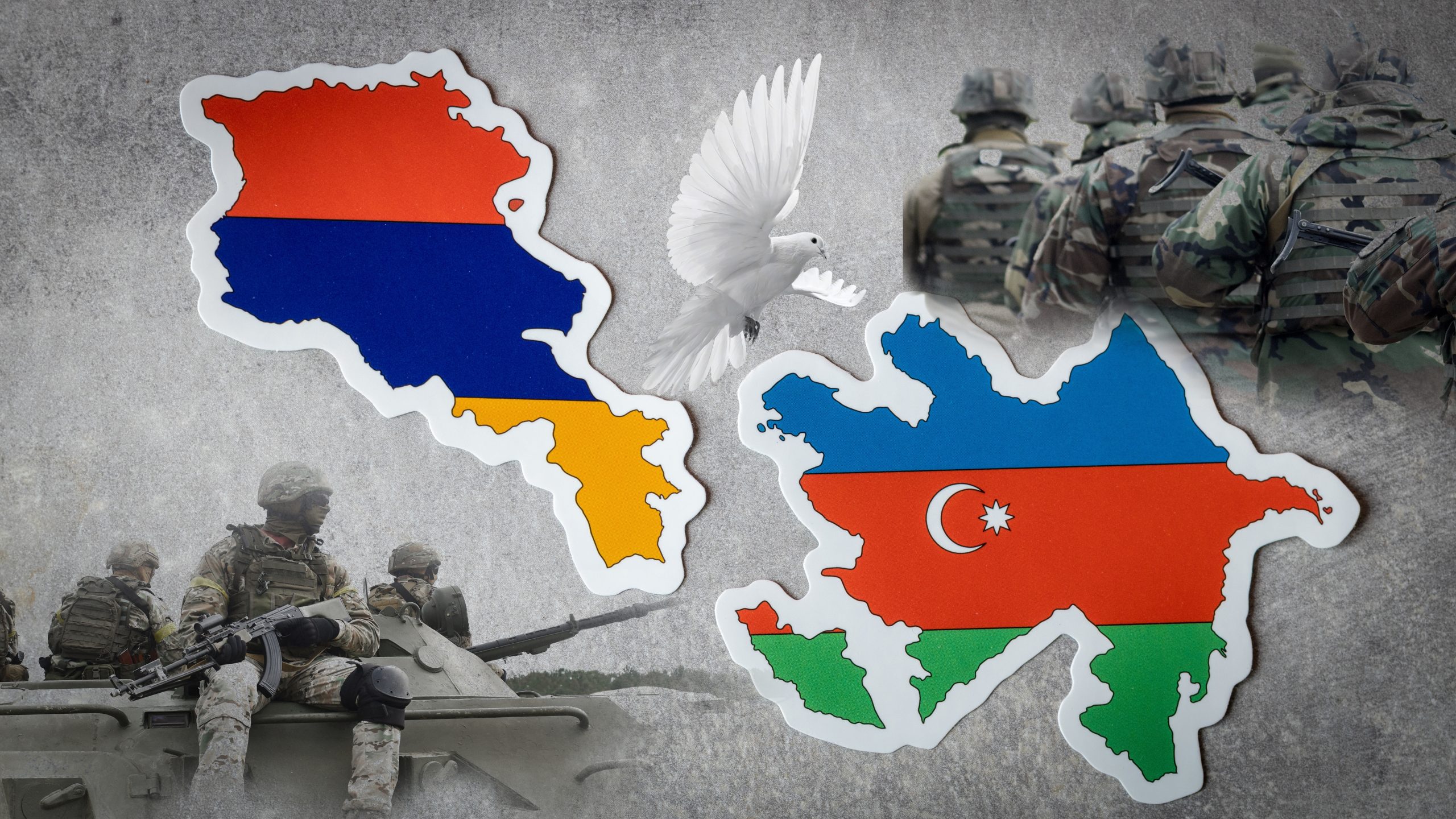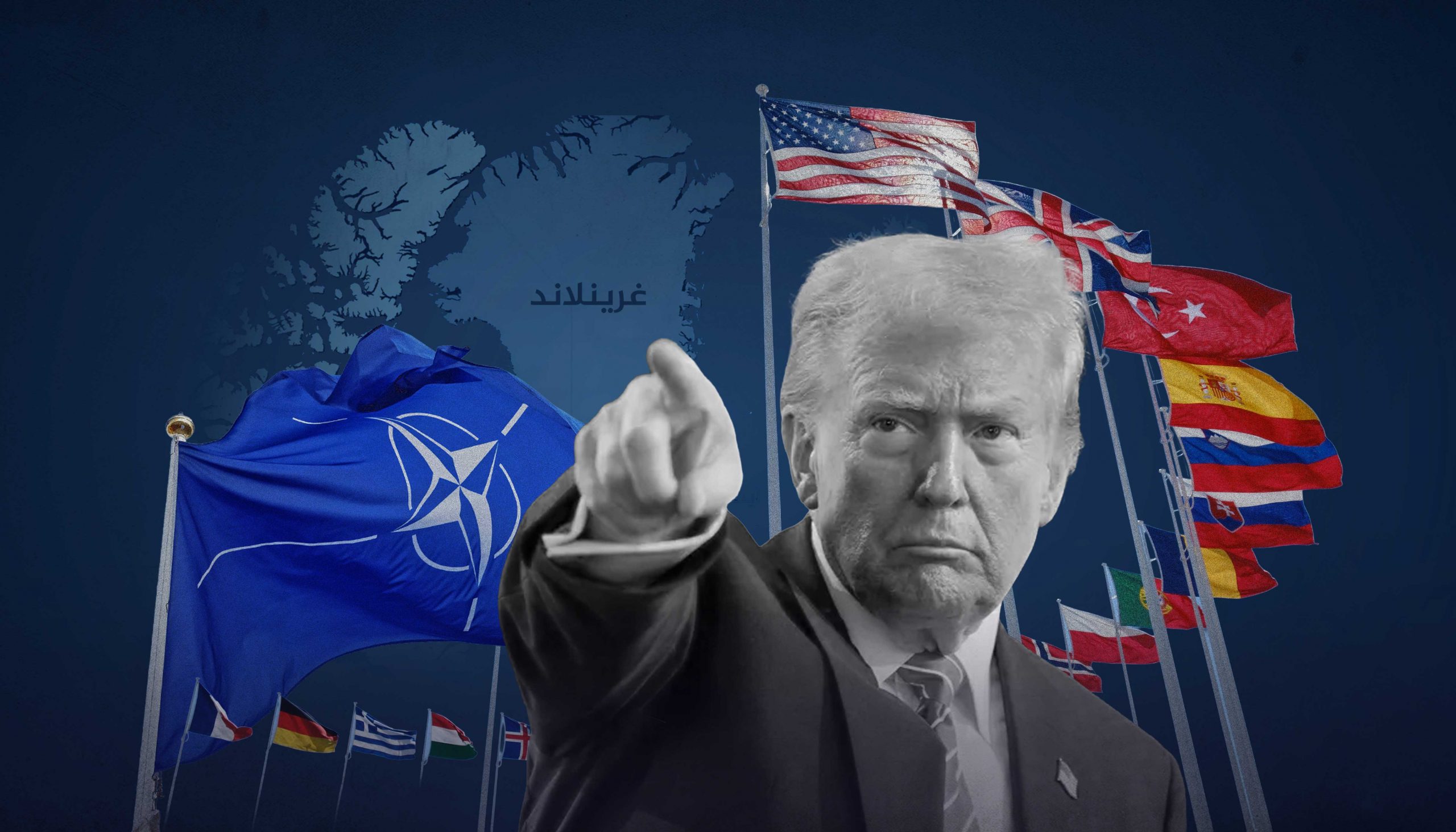Early on September 13, two regional rivals, Armenia and Azerbaijan, were again caught up in major fighting. In a wide-ranging attack, Azerbaijan bombed several cities deep in Armenia, marking an unprecedented turn in the long-simmering conflict between the two historical enemies. Intermittent escalations have been taking place since Armenia’s defeat in the Second Nagorno-Karabakh war and the handover of the territories Armenia had seized during the first war in the 1990s. Yet, the present escalation is unprecedented as it was directed at territory that is not part of either Nagorno-Karabakh or the surrounding territories.
Following Azerbaijan’s attack, Yerevan officially approached the Collective Security Treaty Organization (CSTO), a Russia-led military grouping, for help. CSTO consists of Armenia, Belarus, Kazakhstan, Kyrgyzstan, Russia and Tajikistan, and has clauses guaranteeing mutual defense for its member states. While Moscow brokered a temporary ceasefire,[1] a flurry of diplomatic activity began between Western powers and the two South Caucasus republics. The US Senior Adviser for the Caucasus[2] as well as the EU Special Representative for the South Caucasus[3] made urgent visits to Baku and Yerevan.
It was the first time that Yerevan had evoked Article 4 of the organization’s charter and the expectation was that Moscow would react by convening urgent meetings and perhaps even sending a strongly-worded warning to Baku. In reality, though, the organization only promised to send a fact-checking delegation to Armenia – a move that caused a great deal of indignation in Yerevan and even pushed many ordinary Armenians to demand withdrawal from the CSTO.[4]
The timing for Azerbaijan’s frontal attack is closely related to the regional balance of power, which since the 2020 Second Nagorno-Karabakh war is strongly lopsided in Baku’s favor. Propelled by gas and oil revenues, which has allowed Baku to acquire the newest military technologies, Azerbaijan’s military potential far exceeds Armenia’s. The latter’s alliance with Russia has not helped Yerevan either.
More immediately though, Russia’s preoccupation with its brutal war in Ukraine has created a certain geopolitical vacuum in the South Caucasus that Azerbaijan has been trying to fill. With nearly 2,000 peacekeeping troops in Nagorno-Karabakh, Russia has remained a major player in the South Caucasus. But the war in Ukraine (and rumors that Moscow redeployed some of its peacekeepers from Nagorno-Karabakh to Ukraine[5]) along with the recent victories scored by Ukrainian forces in the Kharkiv region could have further motivated Baku to impose its will on Yerevan, which is to achieve a peace agreement where both sides would agree to recognize each other’s territorial integrity – a major concession from Yerevan, effectively signaling the end of Armenian ambitions around Nagorno-Karabakh (control of the seven regions captured by Armenia during the first Nagorno-Karabakh war in the early 1990s).
Another reason behind Baku’s assertiveness is the EU’s growing interest in having Azerbaijan as a gas and oil exporter amid the energy decoupling between Brussels and Moscow.[6] From 2023, Azerbaijan is expected to export 12 billion cubic meters of gas per year. By 2027, the volumes are expected to double. Moreover, Azerbaijan is a nodal state on the emerging Middle Corridor, which runs from Turkey through Georgia to Azerbaijan and Central Asia.[7] Given the tensions with Russia, the EU needs to have an alternative land route to China and Central Asia.
Russia, too, needs Azerbaijan as the country serves as a bridge to Iran, through which the International North-South Transport Corridor (INSTC) is planned to run, connecting India and Iran with Russian ports.[8] Amid the sanctions imposed on Russia and the expansion of the Middle Corridor, Moscow is now paying special attention to Azerbaijan and its transit capabilities. Thus, for the moment, it is reasonable to expect the Kremlin to tolerate Baku’s ambitions with regards to Armenia.
Moreover, while there is no doubt that Russia’s preoccupation gives Baku space for broader actions against Yerevan, another possibility might be that, strangely enough, Baku is feeling comfortable with Moscow. The February agreement on expanded cooperation, signed between Baku and Moscow just before Russia launched its attack on Ukraine,[9] both expands bilateral cooperation and soothes Russia’s concerns in the South Caucasus, which entails respecting Russian red lines such as not allowing non-regional powers to extend influence into the South Caucasus and the Caspian Sea.
This Russian aloofness surely might change if CSTO reacts in an assertive manner. So far, the reaction has been muted. Though Baku might be miscalculating Russia’s benevolence and preoccupation with Ukraine, it should be noted that Azerbaijan has excellent relations with CSTO member states. Ties with Kazakhstan and Belarus are expanding[10] and though Russia is a decisive actor in this grouping, resistance from Kazakhstan and Belarus might not be easy to overcome.
Russia might also be benefiting from the renewed round of fighting between Armenia and Azerbaijan. The timing is crucial here since the fighting follows yet another meeting in Brussels in August between Armenian and Azerbaijani leaders. From Moscow’s perspective, the fighting undermines Western peace efforts, i.e. it underlines their weakness. With the most recent ceasefire brokered by Moscow, the Kremlin has thus tried to snatch the initiative from the EU. Indeed, over the course of 2022, Armenian and Azerbaijani leaders have met exclusively under EU auspices.
With the fighting between Armenia and Azerbaijan, Moscow also reaps another powerful tool. It could now persuasively argue how important it is for its peacekeepers to stay in Nagorno-Karabakh beyond 2025 when the first term ends. While Armenia will surely embrace the idea of Russians staying, Azerbaijan will not be so happy, but will likely not oppose Moscow.
Another perspective is that the renewed hostilities simply show how Russia’s peace efforts, or the lack thereof, is not a recipe for lasting peace. Russia is a major power in the South Caucasus but it is increasingly losing its prestige in the region, especially with its defeats and weakening military in Ukraine. Azerbaijan is likely to continue testing the Kremlin’s willingness to provide support for Armenia in the future.
It is this intersection of a number of factors which facilitated Azerbaijan’s attack on Armenia. Baku is pressing with the advantage it has held since 2020 and is pushing Yerevan to agree to its demands regarding Nagorno-Karabakh, which revolve around Yerevan recognizing Nagorno-Karabakh as part of Azerbaijan. No less important is the shift in public perception in Armenia regarding the alliance with Russia. Though Yerevan has little room to find alternative security guarantors, the pressure on the government to reconsider the elements of the relationship with Moscow will mount.
Baku-Moscow understanding
The recent escalation puts Azerbaijan-Russia relations in the spotlight. It was argued that the Second Nagorno-Karabakh war could bring an end to Azerbaijan’s multi-vector foreign policy. The signs were there. The Shusha Declaration signed with Turkey cemented an official alliance between the two states.[11] Russia’s military presence in Nagorno-Karabakh caused grievances and fears in Baku over Moscow’s intentions to prolong its stay beyond 2025, when the peacekeeping mission’s first term ends. Moreover, Baku often alluded to the Russian peacekeepers’ suspicious behavior in Nagorno-Karabakh, or even its unwillingness to act a stabilizing power. Russian troops frequently, or on several occasions, accused Azerbaijani troops of violating the status quo, which often caused negative sentiments in Baku.
To the south, Azerbaijan experienced pressure from Iran when the Islamic Republic staged massive military drills near Azerbaijan’s borders. Though the true reason was most likely Ankara’s growing clout in the South Caucasus, Tehran pushed the narrative of alleged Israeli and Western influence to the north of its borders. The end result of the diplomatic and military escalation with Tehran was Baku’s realization of the need for ever greater cooperation with Ankara.
These developments, so it was thought, would cause a major shift in Baku’s thinking – leading to a greater reliance on Turkey which, in turn, would cause tensions with Moscow and Tehran. To many, the end of a multi-vector foreign policy that Azerbaijan so assiduously worked to develop seemed imminent.
That is why Baku’s February 2022 agreement with Moscow, which coincided with the Kremlin’s decision to recognize the independence of the two Donbas entities of Ukraine, surprised many. The document is about building intensive cooperation in virtually every aspect of bilateral relations. But of more interest are the clauses on foreign policy coordination. The two countries agreed to avoid making foreign policy moves that would endanger each other’s interests.
The new agreement underscored the transactional nature of Azerbaijani-Russian ties. Officially the countries have not been allies or even partners, but both have not been geopolitical competitors either. This added flexibility to the bilateral relations, which helped stabilize ties when they appeared to be deteriorating. Moreover, the two states’ leaders have good personal relations and Azerbaijan seems to understand vital Russian concerns on matters of foreign policy such as Western military and security influence in Moscow’s immediate neighborhood.
But perhaps a major rationale behind the agreement could have been the growing need in Azerbaijan to reassure Russia that the ever-closer ties with Turkey are not necessarily directed against Moscow’s influence. It also partially soothes Moscow’s fears that in 2025 Baku could demand the withdrawal of the peacekeepers from Nagorno-Karabakh. The agreement could in a way lessen the dangers Russia could pose, though it is also well understood in Baku that Moscow is notorious for fleeting the rules of international relations and on signed agreements.
On a broader Eurasia-wide geopolitical level, Baku’s thinking was also based on the hard facts of the last several years. Prior to the Russian aggression against Ukraine in February, Moscow seemed powerful. The collective West was striving to find avenues for cooperation with Russia, whether in energy or security matters. Divisions within the trans-Atlantic community, though not as palpable as during Trump’s presidency, nevertheless diluted the salience of this military and economic space. No veritable resistance to Russia’s moves in its immediate neighborhood seemed realistic. This sentiment was also well-reflected in how the West distanced itself from the developments that led to the 2020 Nagorno-Karabakh war and especially during the post-war period when Turkey (indirectly) and Russia dominated the diplomatic process.
Thus, a mixture of necessity and inevitability drove Azerbaijan into closer cooperation with Russia. Increasingly reliant on military tools to keep the South Caucasus under its influence, Moscow needed an agreement which would add a flavor of diplomacy, soft power, and most of all prestige – which it has been lacking. The agreement is a success for Russia because it could help Moscow to lay the ground for post-2025 peacekeeping presence in Nagorno-Karabakh.
The signed agreement does not, however, mean that in the longer run relations between Azerbaijan and Russia are going to be stable. Tensions will be there as it is deeply uncomfortable for Baku to have Russian troops in Nagorno-Karabakh. The contact line is the area where mutual accusations and even limited military escalation could take place.
On a wider level, the core reason is that Russia is suspected of not being interested in pushing for real, long-lasting peace in the South Caucasus. The railway revival project championed by Moscow following the November 2020 ceasefire agreement is not progressing sufficiently. Nor are Armenia-Azerbaijan talks producing the expected results. As a reflection of the stalled negotiations on connectivity, Azerbaijan and Iran recently signed an agreement which essentially expands the transit route through the Iranian territory between Nakhichevan and Azerbaijan proper.
Moreover, despite the February agreement, Russia will remain highly sensitive toward Baku’s allied relationship with Ankara. This will make Russian-Turkish competition more intense, albeit always under the cover of seemingly diplomatic coordination as the region’s two big powers. The Kremlin understands that the Shusha Declaration is more concrete in its essence than the February agreement. Russia has some options to counter the saliency of the Azerbaijan-Turkey alliance, which revolve around not only Armenia-Russia allied ties but also potential Iran-Russia cooperation – as both fear Ankara’s influence in the South Caucasus.
Thus, Azerbaijan is now back to some kind of normalcy in its foreign policy. Multi-vectorism, or active foreign policy with a focus on several big actors, remains an effective tool, though the tilt toward closer ties with Turkey is more salient than before. Ties with Russia will remain close, but it will be increasingly difficult to navigate them amid signs (however early they might be at the moment) that trust between the two states might be eroding.
Unraveling peace-building in the South Caucasus
Constructing long-term peace requires genuine political will, prestige, and a record of untarnished leadership. When Russia negotiated an agreement in November 2020 following the second Nagorno-Karabakh War, hopes were high for a revival of connectivity and economic cooperation to decrease tensions, which would ultimately lead to sustainable peace between Armenia and Azerbaijan. This, in turn, would have led to a more prosperous South Caucasus, a region traditionally beset with inter-ethnic troubles. However, the recent skirmishes along the Armenia-Azerbaijan border, which have killed and wounded soldiers on both sides, defy this expectation. Harsh rhetoric prevails and limits the space for diplomatic solutions.
This further dims the ever-low level of trust between the two warring sides and projects a more chaotic security environment in the region overall. The net result is the postponement in the revival of Soviet-era railways. Moscow was behind the project that would have allowed it to reach Armenia, Iran and Turkey by circumventing troubled transit routes through Georgia. Military calculus was the real motivator. Penetrating the South Caucasus at will has been a major driver behind Russian foreign policy since the dissolution of the Soviet Union. Mitigating the geographical obstacle of the Caucasus mountains is at the heart of Russia’s military efforts.
Russia’s efforts to revive the railway lines have faltered, thus precluding the long-hoped for direct land connection from Azerbaijan proper to its Nakhchivan exclave. Failure to secure the operation of the corridor means that traditional routes through Georgia are likely to retain their significance. These developments also benefit Iran, which for decades served as a connection for Azerbaijan proper to reach Nakhchivan. It provided Tehran with a powerful negotiating tool, and losing it would limit the Islamic Republic’s fragile position in the South Caucasus.
This underlies deeper deficiencies related to the attempted breakthrough in the conflict resolution. Illiberal methods of peacebuilding spearheaded by Russia are failing to produce tangible security results. The primary reason for this lies in the geopolitical component of Russian efforts. Moscow is not genuinely interested in the resolution of the conflict. Geopolitics drive the Kremlin’s thinking. Military and geo-economic considerations prevail over regional security needs. Thence come the simmering tensions between Armenia and Azerbaijan.
References
[1] “Russia Tells Armenia and Azerbaijan: Cease Hostilities,” Reuters, September 13, 2022, https://www.reuters.com/world/russia-tells-armenia-azerbaijan-cease-hostilities-2022-09-13/.
[2] Vugar Khalilov, “New US Senior Advisor for Caucasus Negotiations Arrives in Azerbaijan,” Azernews, September 14, 2022, https://www.azernews.az/nation/199295.html.
[3] “Azerbaijani President Meets EU Special Representative for South Caucasus,” Azernews, September 14, 2022, https://www.azernews.az/nation/199347.html.
[4] “Yerevan Protesters Demand Armenia’s Withdrawal from CSTO,” Hetq, September 17, 2022, https://hetq.am/en/article/148401.
[5] “Baku Claims Russian Peacekeepers Relocated from Karabakh to Ukraine, Moscow Denies Reports,” Jamnews, March 30, 2022, https://jam-news.net/baku-claims-russian-peacekeepers-relocated-from-karabakh-to-ukraine-moscow-denies-reports/.
[6] “EU Signs Deal to Double Gas Imports from Azerbaijan by 2027,” Euractiv, July 19, 2022, https://www.euractiv.com/section/energy/news/eu-signs-deal-to-double-gas-imports-from-azerbaijan-by-2027/.
[7] Emil Avdaliani, “The Rebirth of the Middle Corridor,” Caucasus Watch, June 22, 2022, https://caucasuswatch.de/news/5559.html.
[8] Gunay Hajiyeva “Azerbaijan, Russia, Iran Sign Declaration on North-South Transport Corridor,” Caspian News, September 11, 2022, https://caspiannews.com/news-detail/azerbaijan-russia-iran-sign-declaration-on-north-south-transport-corridor-2022-9-11-0/.
[9] Heydar Isayev and Joshua Kucera, “Ahead of Ukraine Invasion, Azerbaijan and Russia Cement ‘Alliance’,” Eurasianet, February 24, 2022, https://eurasianet.org/ahead-of-ukraine-invasion-azerbaijan-and-russia-cement-alliance.
[10] Assem Assaniyaz, “Tokayev, Aliyev Sign Key Agreements to Boost Kazakhstan-Azerbaijan Strategic Cooperation,” Astana Times, August 24, 2022, https://astanatimes.com/2022/08/tokayev-aliyev-sign-key-agreements-to-boost-kazakhstan-azerbaijan-strategic-cooperation/
[11] Council of Europe, “Shusha Declaration on Allied Relations between the Republic of Azerbaijan and the Republic of Turkey,” Permanent Representation of the Republic of Azerbaijan to the Council of Europe, June 21, 2021, https://coe.mfa.gov.az/en/news/3509/shusha-declaration-on-allied-relations-between-the-republic-of-azerbaijan-and-the-republic-of-turkey.







